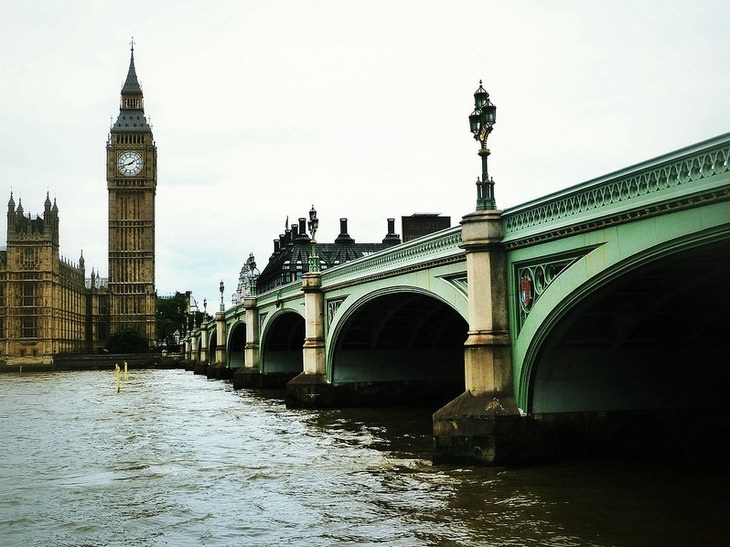Security
Terrorism and 'White Privilege'
This discrepancy, it is alleged, is evidence of ‘white privilege.’

On 1st October, Las Vegas suffered one of the worst mass shootings in US history. One of the most celebrated cities in the United States saw at least 58 people killed and over 500 injured in what appears to have been an act of mindless slaughter. In trying to make sense of the carnage, many people are expressing indignation that the gunman, an elderly white male, is not being described as a terrorist as, say, a Muslim shooter might have been in similar circumstances. This discrepancy, it is alleged, is evidence of ‘white privilege.’
Considering that white Americans have been culpable for more deaths in 2017 and more successful mass shootings than Islamists, it is understandable that some people struggle to make sense of the fact that attacks labelled ‘terrorism’ get a disproportionate amount of coverage. They protest that, due to the nation’s racial biases, white assailants of all sorts are probed for personal circumstances and psychological issues which might protect them from the unique stigmatisation attached to the word ‘terrorist.’ In this subtle but important way, it is alleged, the media and political classes are white-washing the most despicable of crimes.
It would be helpful at this point to define precisely what is meant by the word ‘terrorism.’ However, this is easier said than done because there is no universally agreed-upon definition of terrorism. However, for the purposes of this article, we will rely upon the definition given in Title 22 Chapter 38 U.S. Code § 2656f, which is an act of “premeditated, politically motivated violence perpetrated against non-combatant targets by subnational groups or clandestine agents.” This captures the three elements identified by Israeli terrorism expert Ariel Merari (1993) as present in US, British, and German law:
- The use of violence.
- The pursuit of political goals.
- The aim of spreading fear among the target population.
The claim that white assailants are never labelled terrorists is subject to at least three objections.
The first objection is that some of the most notorious mass murders are committed by a category of white perpetrator whose designation as ‘terrorist’ is the subject of legitimate debate. A racist mass murderer such as Dylann Roof certainly meets Merari’s first condition and the FBI’s requirement of attempting to: (i) intimidate or coerce a civilian population. Roof clearly expressed his desire to instigate a “race war” and was motivated by his own racial bigotry. This certainly sounds political, but it also unambiguously fits the definition of a hate crime. Although he was described as a terrorist in a minority of instances, many people–including then FBI director James Comey–disputed that his crime was sufficiently political to qualify as an act of terrorism.

It is worth considering that terrorism is often set up in opposition to the state. Roof was aiming to murder a particular category of citizen rather than overthrow or undermine the state itself, and this contributed to the way that the political nature of his crime was perceived and understood. An argument could still be made that Dylann Roof is a terrorist, but what is also clear is that there is a practical and categorical difference between working on behalf of a group that wants to effect identifiable changes in government model or policy, and acting out of personal hatred for a group of people within a society. This, however, is not a moral difference. Dylann Roof is no less evil than Dzhokhar Tsarnaev, the Boston Bomber, and people like Dylann Roof are treated no less harshly by the media or courts as a consequence of their designation as mass murderers or perpetrators of hate crimes. The cross section of US citizens who consider racially motivated mass murder less despicable than terrorism is a small one; sufficiently small that Roof was sentenced to death on Federal Charges.
The second objection relates to confusion over the causal role played by a perpetrator’s politics in his or her crime. Craig Hicks, for instance, had expressed contempt for religion on social media, including contempt for Islam. So when he murdered three young Muslim Americans, Hicks’s crime was widely assumed to have been motivated by this animus, even though no evidence has yet been produced in support of this theory. It seems more probable that this was a mass murder, distinguished from countless others by the identity of the victims (who happened to be Muslim) and not by the motives of the assailant. Which is not to say that Hicks could not have been racist or deliberately targeted Muslims, but there is scant evidence to support such a theory and some evidence that contradicts it. Hicks’s wife has insisted that the triple murder was the result of a dispute over a parking space, and law enforcement sources indicated that the investigation was proceeding on this basis. Additionally, Hicks had stated in Facebook posts that he would have no objection to a Muslim American becoming president of the United States and had expressed his further belief that people of all religions should be at liberty to live and practice their faith freely. Even if anti-Muslim bigotry does turn out to have played a causal role in his crime, it would still not qualify as terrorism given the absence of a political objective which terrorists are invariably eager to make plain, for obvious reasons.
The third objection is that there are some clear counter examples of non-white mass killers who have not been reflexively described as terrorists by either the media or law enforcement authorities, such as One L. Goh, Byran Uyesugi, and Seung-Hui Cho. One might object that the discrimination in the media is targeted specifically against Middle Eastern, Arab, and Pakistani people or any individual who ‘looks’ Muslim. In which case, it would be more honest for critics to either admit that this is a specific ‘anti-Muslim’ bias or, alternatively, evidence of ‘non-Muslim’ privilege as opposed to ‘white’ privilege. But this theory becomes less plausible when we consider shootings committed outside of the United States. In Germany, a young man from Kosovo committed a mass attack, but there is no indication that this was an act of terrorism since it did not meet the conditions outlined in the definition above. And, of course, white assailants are categorised as terrorists when the conditions of that definition have been met. Anders Breivik’s murder of 77 people, many of them children, has always and widely been considered an act of terrorism on this basis. He used violence to strike at civilians in an attempt to both terrorise the people and to effect a change in Norwegian policies on immigration and multiculturalism. In fact, from ETA to the IRA, terrorism in the 20th century was a crime overwhelmingly and uncontroversially committed by white European groups.
The personal grievances and murky motivations described above contrast starkly with the Islamist terrorist attacks which have become increasingly common in the contemporary West. When a suicide attack is accompanied by a declaration of faith, “Allahu Akbar,” the motives and allegiances of the attacker are hardly a mystery. A number of international terrorist organisations pour lives and money into tailored propaganda to enlist volunteers in their suicide crusade. When these people commit these acts, many aspects of their lives are laid open to scrutiny, such as their social isolation or history of mental illness. Nonetheless, it is prudent and intellectually parsimonious to accept that they are acting for the reasons they have freely offered, namely that they believe their heavenly bounty will be greater for the severity and method of their martyrdom.

Whilst it may be the case that most jihadists in the West come from a small group of ethnicities, the reason that they are identified so quickly is because their own words and modus operandi have made it clear that they are jihadists. The identity, religion, and ethnicity of a perpetrator are only relevant so far as they tell us about their motivations, and in the case of the Las Vegas shooting, the gunman’s race and religion tell us very little.
It is beyond dispute that Islamic terrorism can be held up as a bogeyman, and that this can be used to mobilise hatred and suspicion against those who are, or might look like, Muslims. Certainly, the fight against terrorism has become a political vehicle upon which unscrupulous demagogues have ridden to political power at the expense of American Muslims. Careless rhetoric surrounding the role of Islam in modern terrorism risks giving ammunition to those who wish to make victims of decent and law-abiding citizens of all nations. But the solution is not to distort the facts surrounding one of the worst American atrocities in recent years in the name of a spurious racial balance.
We know that the gunman’s decision to kill people was premeditated. Yet, in spite of the FBI’s attempts to piece together his motives, at the moment we simply do not know what led him to do what he did. Without communications, a confession, or reliable character witnesses, we cannot know if he was targeting a particular group of people for any particular reason, still less if that reason was political. It may be the case that the investigation uncovers accomplices, detailed plans, and a secret manifesto in the coming weeks. But at this point, calling him a terrorist would not only be irresponsible, it would be dishonest. That he had no children or may have had a gambling problem is not going to exonerate him. The gunman’s face is plastered over our newspapers and social media, and he is rightly reviled for his terrible crime. Whether or not it can justifiably be categorised as an act of terrorism is not about to change that.






